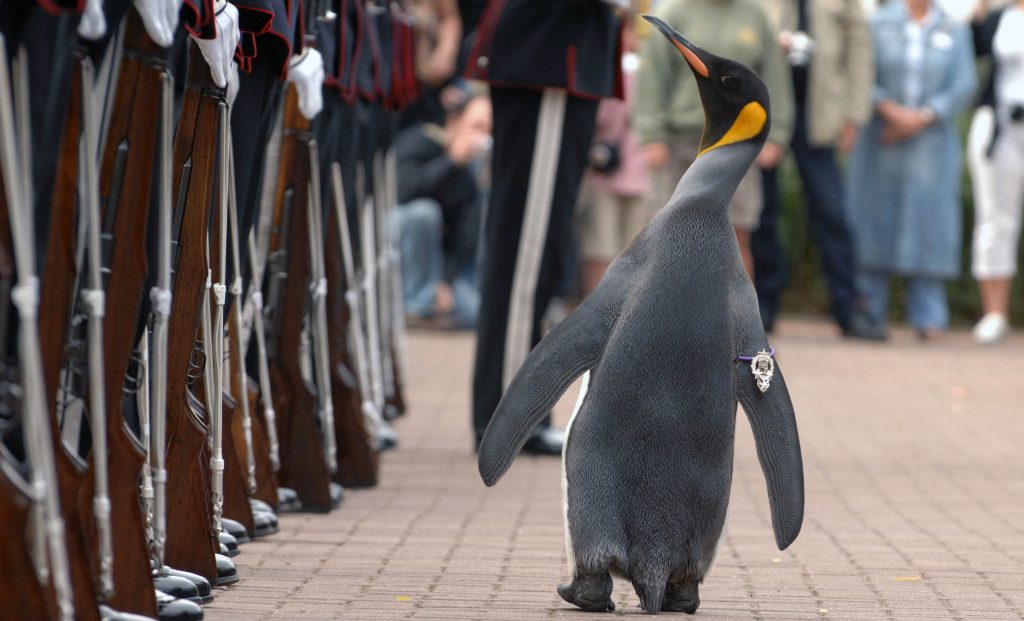When war came to Ukraine, its Antarctic scientists didn’t just endure—they enlisted.
Others are reading now
At Ukraine’s Vernadsky Research Base in Antarctica, penguins, glaciers, and cutting-edge science define daily life.
But when Russia launched its full-scale invasion in 2022, even this remote outpost was pulled into the conflict.
Thirty-one Ukrainian polar scientists—biologists, mechanics, meteorologists, and more—joined the Armed Forces.
Now they are known, proudly and unofficially, as the Military Penguins.
Also read
Two Views from the Ice
“The first thing that hits you is Antarctica itself—it’s like flying to space,” recalls Maksym Bilous, a systems mechanic who served two expeditions. “Icebergs, ocean, wildlife. For days, I couldn’t believe such beauty existed.”
But the romance fades quickly. “You notice the penguins. Thousands of them. It’s not a cute postcard—there’s the smell, the mess. Nature in its rawest form.”
Vernadsky Base is home to two penguin species, plus seals, sea lions, and whales. Around 15 staff operate the station year-round, supporting crucial work in biology, geophysics, and meteorology.
One major role is continuous geomagnetic monitoring, essential for technologies like smartphones and global positioning.
Ukraine’s observatory—entirely built with Ukrainian equipment—ranks among the world’s best.
According to United24 Media, meteorological data from the base also feeds into global climate models. But this long-view science depends on consistency. And when war broke out, that stability shattered.
War Reaches the Southernmost Outpost
On February 24, 2022, as the team waited in Chile to head south, the news hit: Russia had invaded.
“No one slept,” says Bilous. “Everyone was glued to their phones, worried about home.”
Returning wasn’t possible.
Pandemic restrictions and logistics meant abandoning the mission would risk the station itself. The team chose to continue. Afterward, two seasonal members hitchhiked back to Ukraine. Others, like Bilous, joined the military when they could.
He now trains soldiers as a sapper. His colleague, meteorologist Ihor Artemenko, also enlisted.
“I wanted to prove I was no less than my father,” he says.
Hennadiy Artemenko, a 72-year-old geologist and National Academy of Sciences member, also volunteered—serving in Bucha, Irpin, and other frontline hotspots before the military finally realized his age.
From Science to Survival
“I had to twist the truth to get accepted,” Ihor admits. Now a communications officer, he has served in Kupiansk, Vovchansk, and Lyman.
“I knew war was coming. We talked about it at the Faraday Bar in 2021,” he says—referring to the world’s southernmost bar, part of the station’s legacy from its British roots.
Each Saturday, Vernadsky staff still hold formal dinners, wearing suits and dresses.
“We didn’t want to become savages,” says Bilous. That sense of discipline now helps them endure war.
The Military Penguins include engineers, medics, diesel techs, and sysadmins turned infantry, drone operators, and scouts. They’ve designed a unit patch—penguin and flag included—and stay tightly connected. Charity auctions and virtual base tours help raise funds to support wounded veterans in their ranks.
The Cost of Commitment
Some have paid a steep price. Yurii Lyshenko, once a Vernadsky expedition member, lost part of his leg to a Russian mine. While recovering, he survived a missile strike in Kyiv. In 2025, he returned to Antarctica.
“Now I’m an Antarctic pirate—with one leg and a penguin on my shoulder,” he jokes.
Ihor, too, is in recovery. “The health problems have piled up. At some point, my legs stopped working. But the tank crews rely on me. Under fire, I give myself an injection and go.”
Still, war’s toll is more than physical.
“In Antarctica, danger was real. But here, it’s constant. You stop sensing it. That’s the danger—you forget the body armor, let your guard down. And then there’s the fear you can’t shake—what if I have no one left to go home to?”
Despite it all, Ihor plans to return to science. “Being a scientist—it’s for life.”
Hours after the interview, he sent one final message: “Getting shot at, bombed—that’s our daily life. But the worst fear is not what happens to me. It’s not knowing if my wife, my daughter, my mother are safe. That’s what terrifies me most.”


